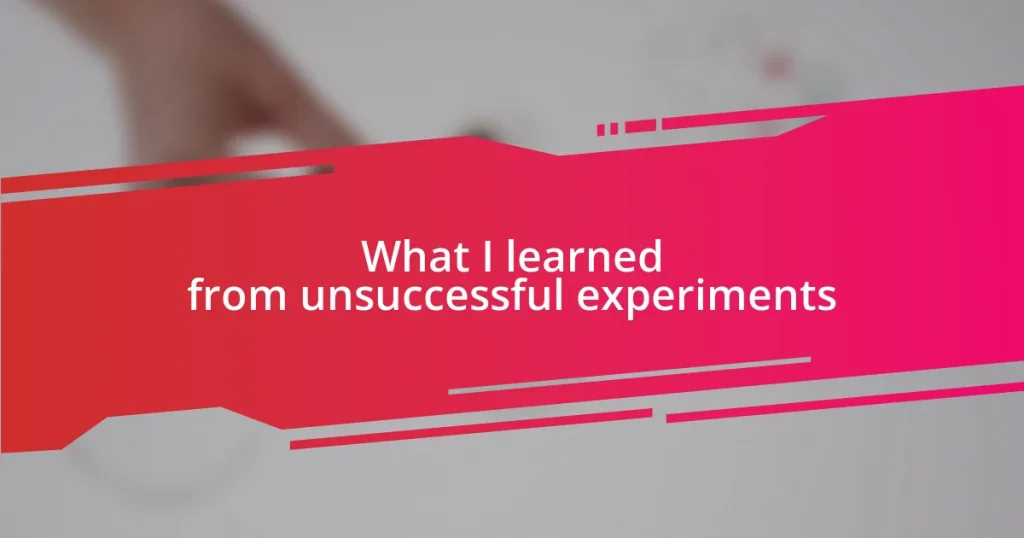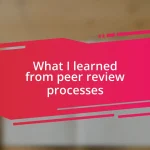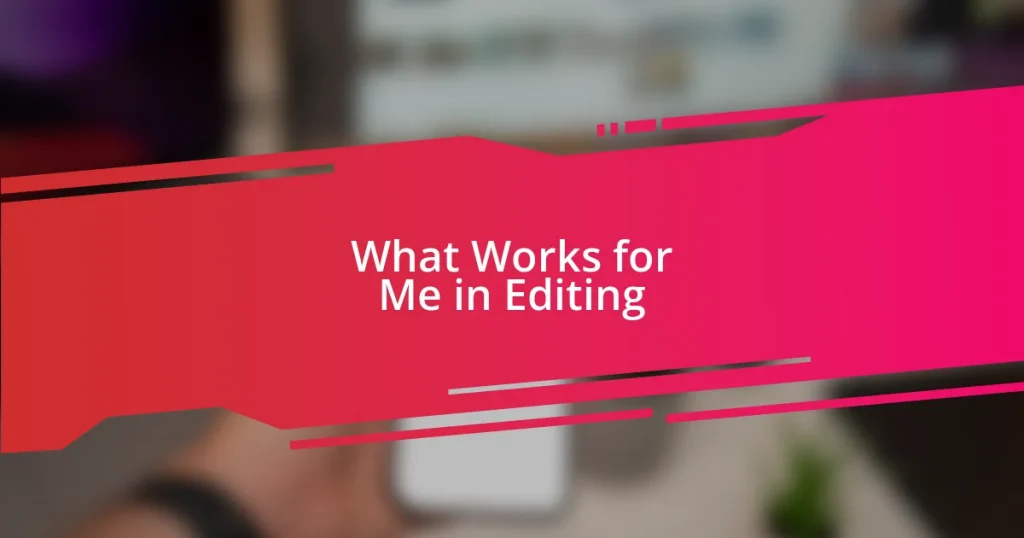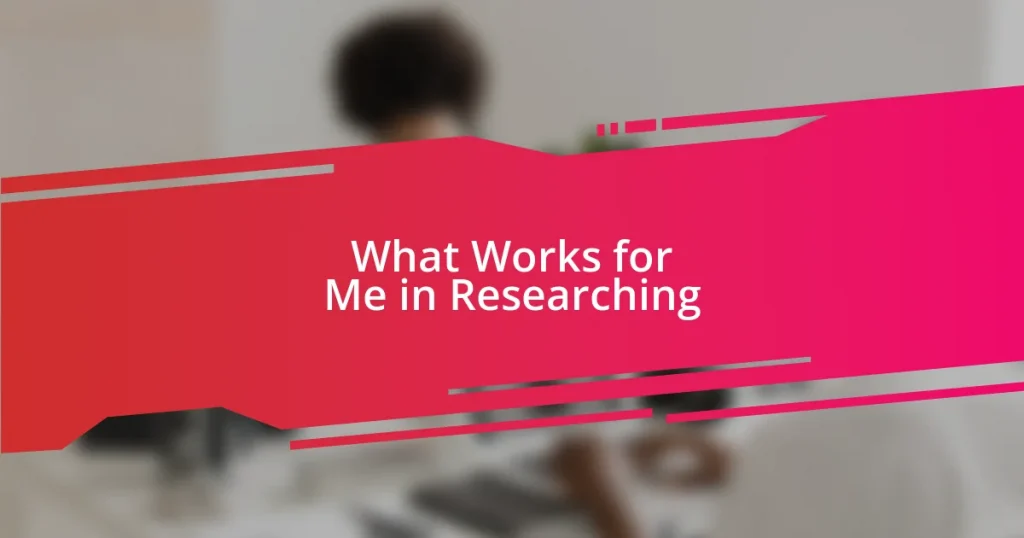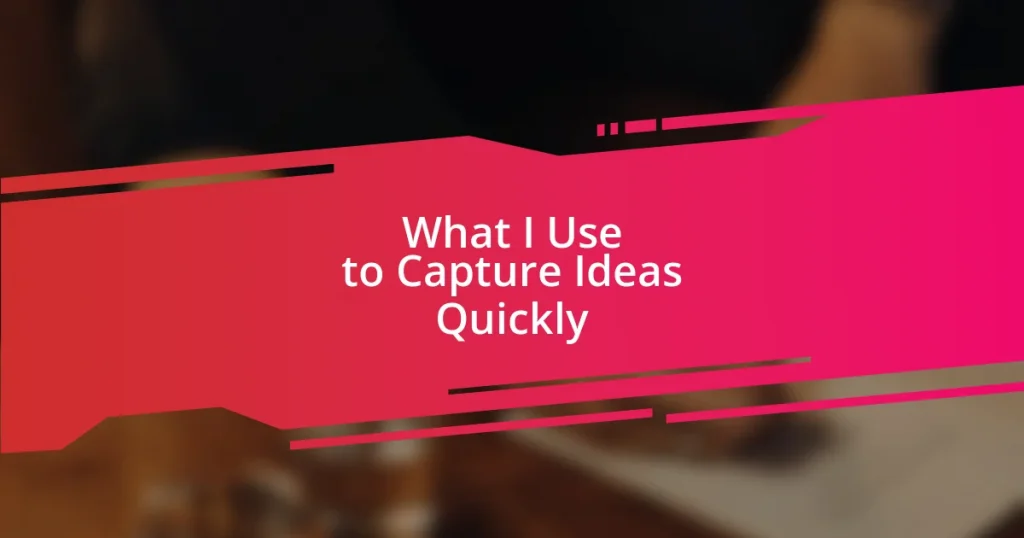Key takeaways:
- Resilience and adaptability are essential for overcoming setbacks; analyzing failures can lead to valuable insights and personal growth.
- Sharing experiences with others fosters a culture of openness and collaboration, transforming individual struggles into collective learning opportunities.
- Reframing failure as a stepping stone encourages innovative thinking and helps develop strategies for future success.
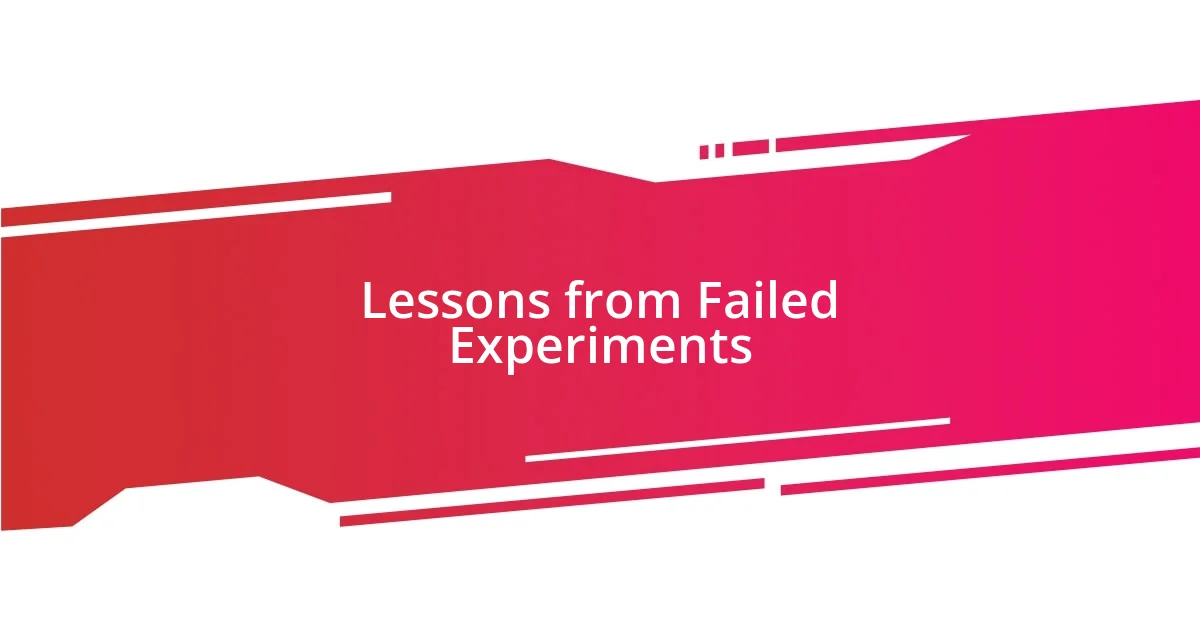
Lessons from Failed Experiments
One of the most profound lessons I’ve learned from my unsuccessful experiments is the importance of resilience. I still remember the sting of disappointment when a project I poured my heart into failed spectacularly. In that moment, I could have easily given up, but instead, I chose to analyze what went wrong. Have you ever felt that push to rise after a setback? It’s in those challenging moments that we discover our true determination.
Another significant insight I gained is the value of flexibility in my approach. There was a time when I rigidly stuck to a plan, ignoring signs that it was misguided. This stubbornness taught me that adaptability often leads to unexpected breakthroughs. When you review your own projects, do you allow space for adjustments based on what you learn along the way? This has been instrumental in my growth as a creator.
Lastly, every failure has a story to tell—a narrative that can guide future endeavors. I recall a specific experiment where my expectations overshadowed my instincts, leading me astray. After reflection, I learned that my intuition is a powerful ally; listening to it can illuminate paths I might not consider otherwise. Have you had moments where trusting your gut led to clarity? Embracing these lessons transforms failures into stepping stones toward success.

Understanding Failure’s Impact
Understanding failure redefined my perspective on growth. After my first major project didn’t meet expectations, I felt crushed. I distinctly remember sitting in silence, reflecting on the chaos that unfolded. Yet, in that quiet moment, I recognized that failure is not the end—it’s a prompt for transformation. Have you ever paused to reflect after a setback? It can illuminate lessons that are often hidden in the fog of frustration.
Additionally, failure fosters empathy, both towards ourselves and others. When I look back at that unfortunate project, I see how it shaped my interactions with peers. I became more understanding of their struggles and challenges because I had walked that path myself. This connection helps build stronger collaboration in future endeavors. Think about your past failures—have they helped you connect more meaningfully with others in your field? I’ve found that embracing shared experiences makes for a more supportive environment.
Here’s a thought-provoking element: the analytical aspect of failure. I’ve learned to view my failures as valuable data points, rather than just disappointments. One particularly rough experiment led me to compile a journal of missteps and insights. This journal now serves as a guiding light for my future projects, reminding me that there’s always something to learn. Have you started documenting your failures? It can be an enlightening practice that turns setbacks into blueprints for success.
| Type of Impact | Description |
|---|---|
| Personal Growth | Failure reveals our inner strengths and areas needing improvement. |
| Empathy | Experiencing setbacks enables us to relate to others’ struggles. |
| Data Analysis | Failures can be transformed into lessons that inform future decisions. |
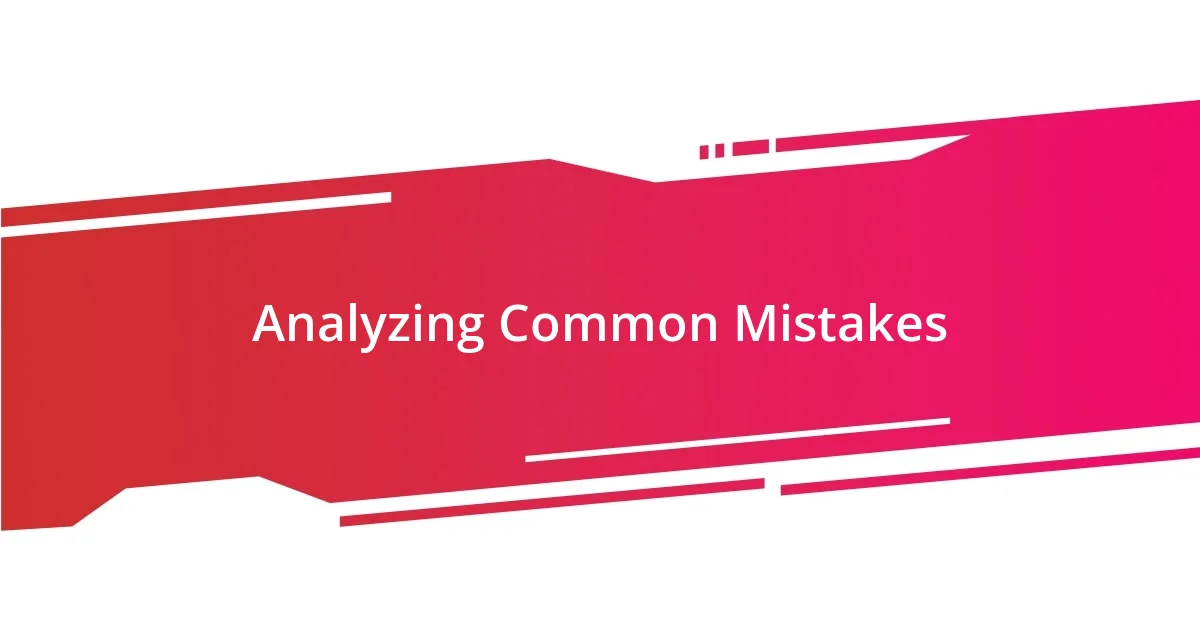
Analyzing Common Mistakes
When I reflect on my experiments, I realize that many common mistakes stem from my failure to set clear objectives. I had one project where my goals were vague, and the lack of direction led me down a convoluted path. Instead of staying focused, I found myself scattered, trying various methods without a solid plan. It was a frustrating experience, and I learned that establishing precise, measurable objectives is crucial for success.
To avoid common pitfalls in your own projects, consider these key mistakes:
- Vague Goals: Without specific objectives, it’s like sailing without a compass.
- Ignoring Feedback: Failing to listen to constructive criticism can prolong problems.
- Overconfidence: Sometimes, I overlooked the importance of research, only to realize later how crucial it is to base decisions on facts rather than assumptions.
- Lack of Documenting: Failing to note progress and issues can repeat mistakes endlessly.
By dissecting these blunders, you can not only avoid them but transform your approach for future success. I’ve found each mistake is a building block to better decision-making—it’s all about learning to navigate with insights from the past.
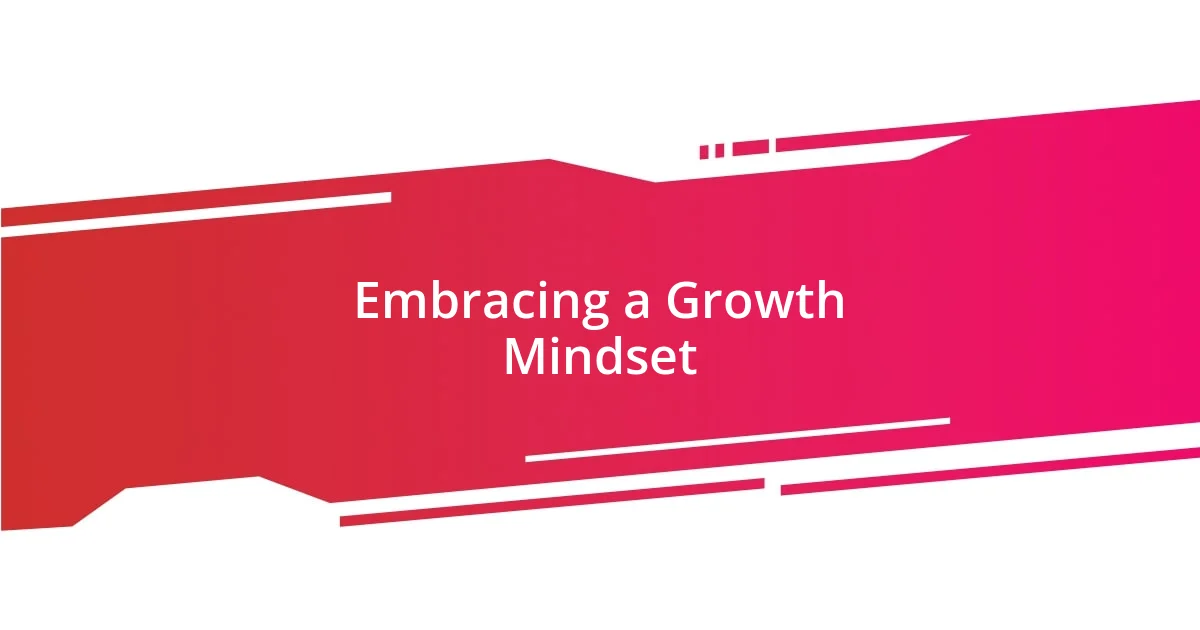
Embracing a Growth Mindset
Embracing a growth mindset has been a game-changer for me. I remember this one time when my carefully crafted presentation didn’t land as I had envisioned. Instead of spiraling into self-doubt, I chose to reflect on what went wrong. I began asking myself, “What could I learn from this experience?” This shift in thinking allowed me to approach challenges with curiosity rather than fear of failure.
When I shifted to a growth mindset, my perspective on feedback transformed dramatically. One instance that stands out was during a project review; a colleague pointed out some overlooked aspects. Initially, I felt defensive. However, embracing a growth mindset helped me view their comments as opportunities for improvement. Now equipped with a willingness to learn, I actively seek out constructive criticism, knowing it can elevate my work to new heights. Have you ever considered how feedback could propel you forward instead of holding you back?
The beauty of embracing a growth mindset is that it cultivates resilience. I recall facing a daunting challenge at work, where the pressure felt overwhelming. Instead of shying away from it, I embraced the process—complete with its ups and downs. This willingness to engage with the struggle not only enhanced my skills but increased my confidence over time. It’s fascinating to think about how each setback could lead us closer to our goals when we welcome them as integral parts of our journey. How do you think a growth mindset could change your approach to challenges?
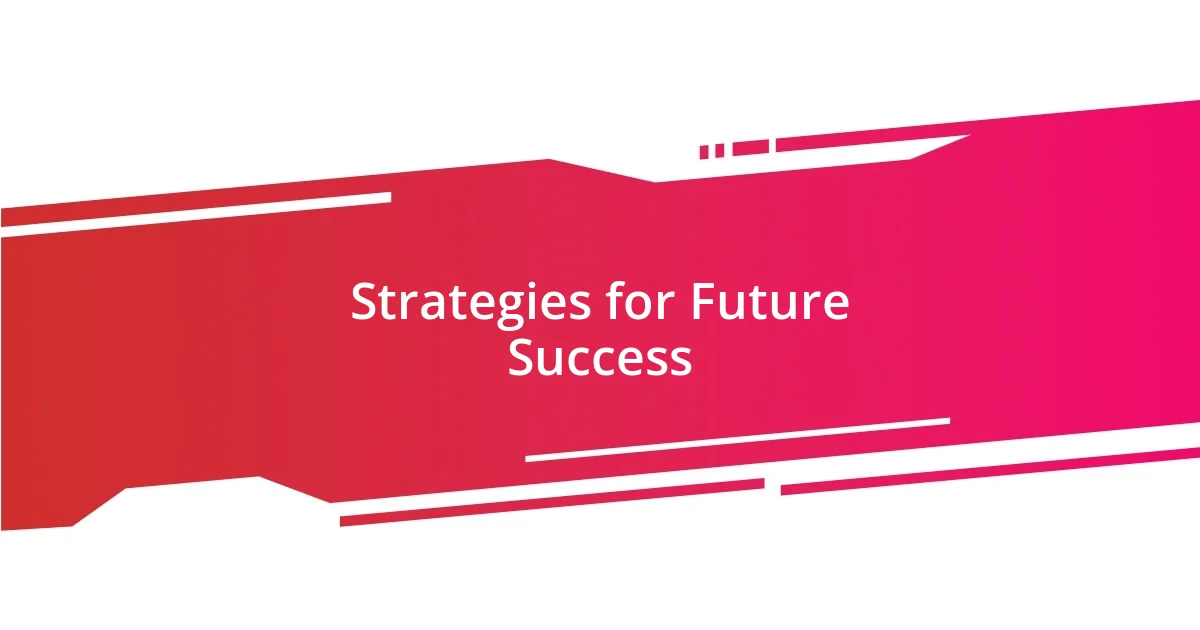
Strategies for Future Success
In developing strategies for future success, I’ve discovered that thorough preparation is essential. During one of my earlier projects, I dove headfirst into the execution phase without adequate groundwork. Looking back, I realize how crucial it was to allocate time for research and planning. That project taught me that taking the time to prepare not only sets a solid foundation but also increases my confidence as I move forward. Have you considered how a little extra preparation can make a significant difference in your own endeavors?
Equally important is cultivating adaptability within my work processes. I recall an instance where an unforeseen obstacle emerged just days before a deadline. Instead of being overwhelmed, I quickly pivoted my approach, allowing flexibility to guide me. This experience reinforced the idea that flexibility isn’t a weakness; it’s a strength that can lead to innovative solutions. In what ways do you allow yourself to adapt when faced with unexpected situations?
Lastly, I can’t stress the importance of building a supportive network. I used to believe I could do everything alone, but that mindset only led to burnout. Engaging with a group of mentors and peers who share insights and experiences has made a world of difference. One day, while brainstorming ideas with a trusted colleague, we sparked a new direction for a project that ultimately became one of my best successes. As you think about your own goals, how could establishing a supportive network enhance your journey?
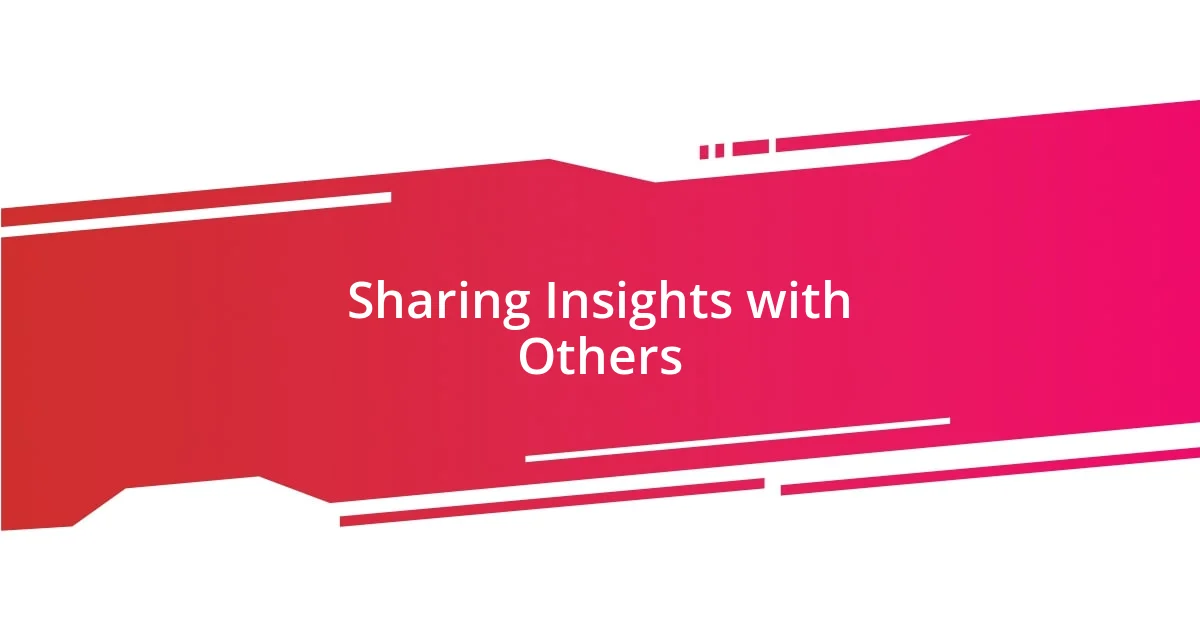
Sharing Insights with Others
Sharing insights with others has been a vital part of my learning journey. Recently, I was part of a small group where we openly discussed our past project failures. Listening to others share their experiences made me realize how much we can grow from each other’s stories. Have you ever found yourself floored by the lessons someone else’s missteps can teach you?
I remember a particular instance where I shared my thoughts about a failed marketing campaign with a close friend. Initially, I felt embarrassed, but as I recounted the struggles and what I learned, I noticed their eyes light up with understanding. They had faced a similar situation, and together, we brainstormed ways to turn those lessons into actionable strategies. There’s something incredibly cathartic about discussing setbacks; it transforms isolation into connection and opens up a dialogue for collaborative growth. Have you considered how sharing your struggles can not only help you but also inspire someone else?
In my experience, sharing insights doesn’t just aid personal growth; it nurtures a culture of openness and learning within teams. During a company meeting, I shared a comprehensive analysis of what didn’t work in one of our projects, rather than solely touting the successes. The result was eye-opening. Colleagues started to volunteer their insights, leading to a vibrant discussion that sparked innovative ideas. It struck me how powerful vulnerability can be in fostering a creative environment. When was the last time you shared your challenges and saw the dynamic shift in conversations around you?
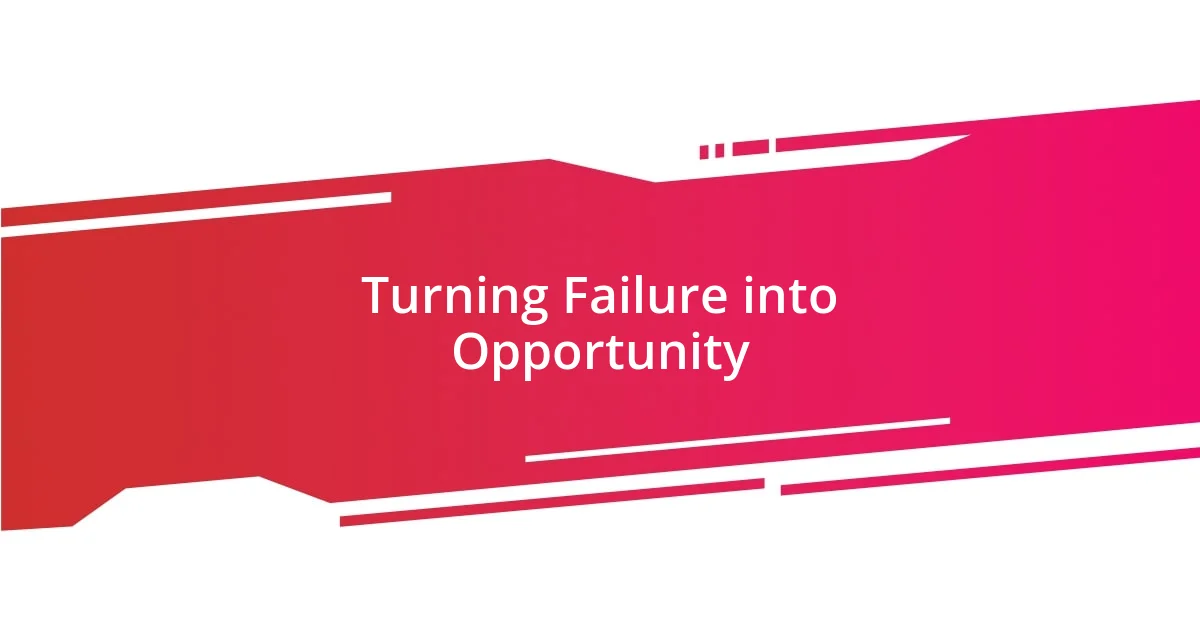
Turning Failure into Opportunity
Experiencing failure can feel daunting, but it also presents a unique opportunity for growth. I remember an art project that didn’t resonate with anyone; it was a tough pill to swallow at first. However, that moment of disappointment lit a fire in me to explore feedback and understand my audience better. Have you ever turned a moment of critique into a powerful learning experience?
Embracing the lessons from my less successful endeavors has become a cornerstone of my approach moving forward. I once participated in a pitch for a potential client that fell flat. Rather than sulking, I analyzed why it didn’t connect—exploring everything from my presentation style to the proposal’s tone. Each insight revealed a more refined approach for future opportunities, proving that scrutinizing failure can be the breeding ground for innovation. Have you taken the time to dissect your disappointments for the seeds of success hidden within?
I’ve found that reframing failure as a stepping stone can transform my mindset entirely. Consider a failed experiment I embarked on, where the strategy didn’t align with my goals. Instead of giving up, I shifted my perspective to see it as a trial run; it provided invaluable data and laid the groundwork for a refined strategy. That experience reminded me that every setback carries the potential for new perspectives. How do you reshuffle your thoughts when faced with an unexpected outcome?










